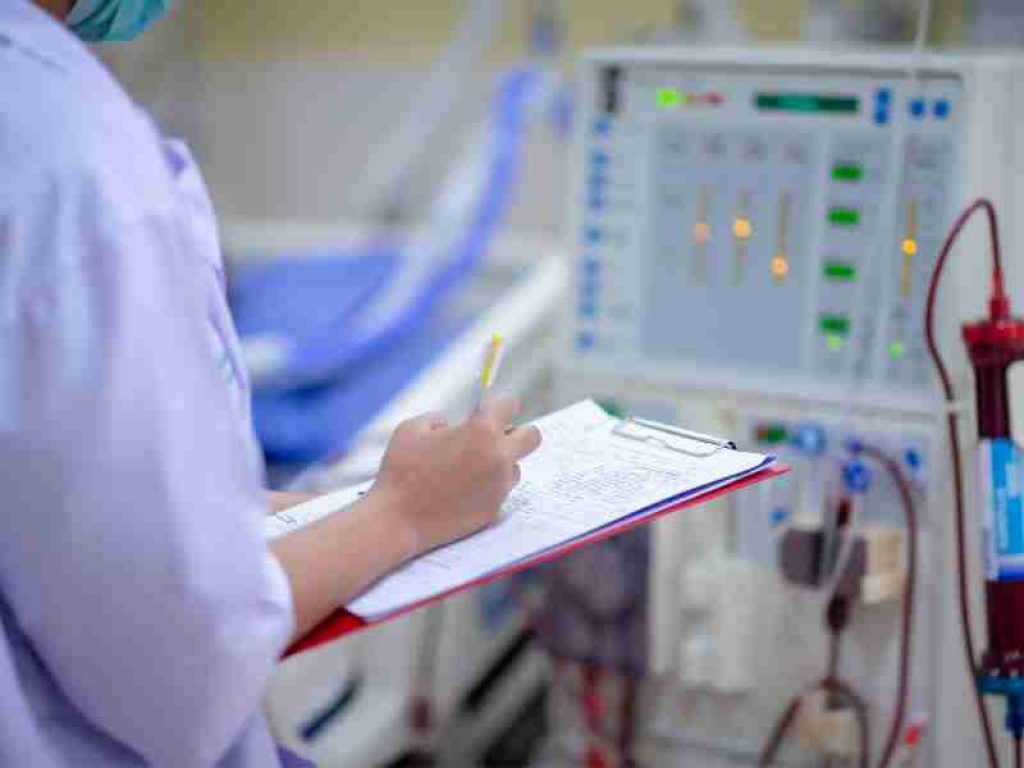
What Is A Progressive Care Unit Nurse?
Patients stabilized in the intensive care unit may be transferred to the progressive care unit for continued treatment and monitoring. The work of progressive care nurses facilitates an integral part of the healing process. What are the duties of a progressive care nurse? What is the work atmosphere like? What are the necessary skills? All of these questions and more are answered in this article.
What is a progressive care unit nurse?

Registered Nurses who work in the Progressive Care Unit provide care for patients. Nurses collaborate with other healthcare professionals, such as nursing aides, doctors, surgeons, and physical therapists, to determine each patient’s most effective treatment plan.
What is a progressive care unit?
A progressive care unit, also known as a progressive care unit, is a wing or wing(s) of a hospital that focuses on providing care and treatment in stages. It’s where people go once they’ve been discharged from the Intensive Care Unit.

After a patient has recovered enough to perform even the most fundamental daily tasks, they are usually transferred to the PCU. This is different from what you would find in an intensive care unit. Some important distinctions between the two are as follows:
Different stages in the healing process:
Patients who have had significant surgery or sickness and need continual, specialized care are treated in the ICU. After intensive care, patients move on to the progressive care unit, where they receive specialized care with an emphasis on rehabilitation.
A different number of staff:
The number of people working in a PCU and an ICU may differ. Patients in an intensive care unit (ICU) tend to be quite ill, so it is common practice to staff the unit with more nurses than usual to maintain a strict one-nurse-to-one-patient ratio.
A 1-to-3 or 1-to-5 unit-to-care ratio may be sufficient once patients have stabilized enough to be transferred to the PCU.
What Tasks Do Progressive Care Nurses Perform?
- As new patients are admitted to the progressive care unit, the Progressive care unit nurse must review medical records, dosages, and test results.
- Measurements of the patient’s heart rate, blood pressure, and pulse oximetry must be recorded and monitored regularly.
- Determining the significance of readings from complex medical machinery.
- Keep eyeing medications, dosing them correctly, and adjusting as needed.
- Assessing the diagnostic value of metric shifts and the efficacy of targeted treatment plans.
- Notifying medical professionals of deteriorating conditions and complying with their treatment recommendations.
- Ensuring all medical records, patient files, and ward charts are up to date.
- Supervising nursing aides and other support employees in the Progressive Care Unit.
- Talking to patients and their loved ones about their treatment options and answering their questions.
How to become a progressive care nurse?
Nurses working in progressive care settings need a great deal of clinical experience. A common training and education trajectory may include the following:
Completing a nursing program:
Nurses working in the PCU must have at least an RN diploma or BSN. In order to obtain a nursing license in their state, graduates must successfully complete the National Council Licensure Examination for Registered Nurses.
Learning new skills:
Nursing students can enroll in a variety of different programs at different hospitals. Training programs allow you to gain experience in vital clinical skills and information about the progressive care unit and other aspects of the hospital once you have graduated and accepted a position there.
Acquiring Real-World Knowledge of Your Field:
Prospective progressive care nurses typically gain experience in medical settings such as emergency departments and doctor’s offices.
Attaining a Certificate:
A nurse can become certified in various areas and medical procedures. For example, a Progressive Care Certified Nurse (PCCN) credential could be earned to specialize in delivering care to those with clinical illnesses.
What are the Skills of a Progressive care nurse?
Progressive nurses are well-versed in the technical aspects of patient care and possess the softer qualities necessary to develop meaningful relationships with their patients.

A few examples of the hard and soft talents that progressive care nurses typically possess are as follows:
Compassion:
Nurses who have empathy for their patients can better meet their needs and encourage them as they heal. The sacrifices nurses make on behalf of their patients and the genuine care they show for their well-being are examples of compassion.
Compassionate nurses can better empathize with their patients’ loved ones and provide consolation in times of need.
Clinical skill:
During their education, nurses learn to do various clinical tasks, such as taking vital signs, inserting intravenous lines, dispensing medication, performing CPR and first aid, and conducting diagnostic testing.
Basic mathematic skills:
If they are administering medications, nurses in advanced care settings may need to measure them, which calls for familiarity with basic mathematics.
Computer Skills:
Digital cloud storage allows many hospitals to store and share patient records safely. You’ll need to be comfortable with computers and know your way around a file system.
Ethics in healthcare:
As part of their education, nurses learn about the ethical principles behind medicine. This includes how to interact with patients and coworkers, give objective care, and keep patients’ records private and secure.
Communication and teamwork:
Professionals in progressive care, including nurses, therapists, and doctors, work together to provide the best possible care for their patients.
Health care professionals document changes in a patient’s condition and communicate with their families about treatment plans.This calls for superior verbal and written communication abilities and teamwork aptitude.
What level of expertise is required to work as a Progressive Care Unit Nurse?
Nursing experience is typically required for employment in a progressive care unit. Nurse applicants seeking a PCCN certification must have 1,750 hours of verifiable experience caring for very ill patients in a clinical setting. Most nurses working in a progressive care unit have at least a bachelor’s degree in nursing (BSN), with some holding master’s degrees (MSN).
Critically ill patients or those who have recently undergone extensive surgery are typical progressive care patients. For this reason, nurses working in the progressive care unit typically have prior expertise in other hospital areas or in a different setting, such as a nursing home.
What is the Average Salary of a Progressive Care Unit Nurse?
In the United States, a nurse working in a progressive care unit can expect to earn a median annual pay of $29,643. The specifics of the task they undertake and the area in which they do it can affect this average. Progressive and critical care nurses can earn an additional $11,375 annually through overtime.
FAQ’s
What’s the goal of having a Progressive Care Unit in a hospital?
Patients with mild but serious health issues can receive a higher level of care in the hospital, known as progressive care. This involves more frequent monitoring and assessment than those admitted to the surgical/medical floor. It can be considered a care between the emergency and regular hospital rooms.
What kind of patients are in a progressive care unit?
Patients with cardiac concerns, chronic illness complications (such as those caused by chronic obstructive pulmonary disease or diabetes), postoperative patients, trauma victims, and others are all treated in the PCU.
What do you mean by progressive patient care?
To improve the quality of care provided to each patient, hospitals are increasingly adopting the idea of progressive patient care (PPC).
What is the difference between ICU and progressive care units?
A PCU acts as a transitional unit between an ICU and an MSU. Patients in the PCU no longer need the intensive care provided by the CICU but still require close monitoring and a high degree of nurse care.







